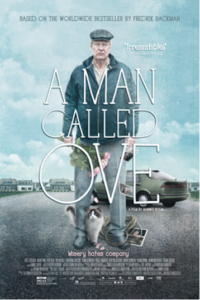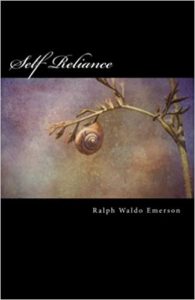
A Man Called Ove (2015)
Directed by Hannes Holm
Starring Rolf Lassgård, Bahar Pars, Ida Engvoll, and Filip Berg
A Man Called Ove. It sounded familiar. Had I seen it? Did I read the book? I thought it might be that memoir I’d read several years ago… the one written by a Nordic author. What was the name of that? Something like My Life. Or My Work. Hmm. Oh, yes! It was My Struggle!
I googled My Struggle. The author was Karl Ove Knausgard. So that was the connection!
I googled A Man Called Ove. The plot, as recounted by Wikipedia, is about an older man struggling to find meaning in his life after his wife dies. “Isn’t that the theme of the TV series with Ricky Gervais?” I thought. “Oh, the hell with it. I’ll just watch it.”
Three or four minutes in, I realized that I had seen it before. But I didn’t remember the plot. I decided to continue watching until my memory kicked in. It never quite did. So I was able to watch this good film a second time, with the enjoyment of the first.
A Man Called Ove is a good and worthy film.
The acting is universally excellent, with stand-out performances by the three leading characters.
The cinematography (Goran Halberg) ranges from the banal to the bleak, which is exactly right for the story. The costuming is correctly invisible. The pacing is perfectly languid (Fredrik Morheden). The music (Gaute Storaas) is invisibly moving. And it is funny, romantic, thoughtful, and crushing – which, I have to guess, is exactly the way the director (Hannes Holm) wanted it to be.
On one level, it’s a romance – actually, a double romance – about the seduction of Ove, first by his wife and then later, after her death, by a young and pregnant Iranian woman who becomes his neighbor.
On another level, it’s a story about human isolation and connection. It’s a drama, half comic and half, tragic, but it’s not exactly a tragicomedy, nor is it really black humor. Its humor is sweet and gentle. But the plot is hard and depressing. The tone is moody, brooding, and in search of meaning. In that sense, it has a place in a long tradition of Nordic existentialist films.
As I said, it’s a worthy film.
Critical Reviews
* “A Man Called Ove’s winsome sincerity – and Rolf Lassgard’s affectingly flinty performance in the title role – keep it from succumbing to excess sentimentality.” (Rotten Tomatoes)
* “Holm’s well-judged adaptation of the bestseller keeps the maudlin to a minimum and plays the black comedy just right. A strong contender for feel-good film of the year.” (Empire Magazine)
* “Holm tweaks expectations with the way he presents the material, and his grip on the film’s tricky, tragicomic tone is masterful.” (Roger Ebert)
Interesting Facts
* A Man Called Ove was Sweden’s official submission for Best Foreign Language Film at the 2017 Academy Awards.
* An American version of the film is reportedly in the works, with Tom Hanks to star in the leading role.
 MarkFord
MarkFord
